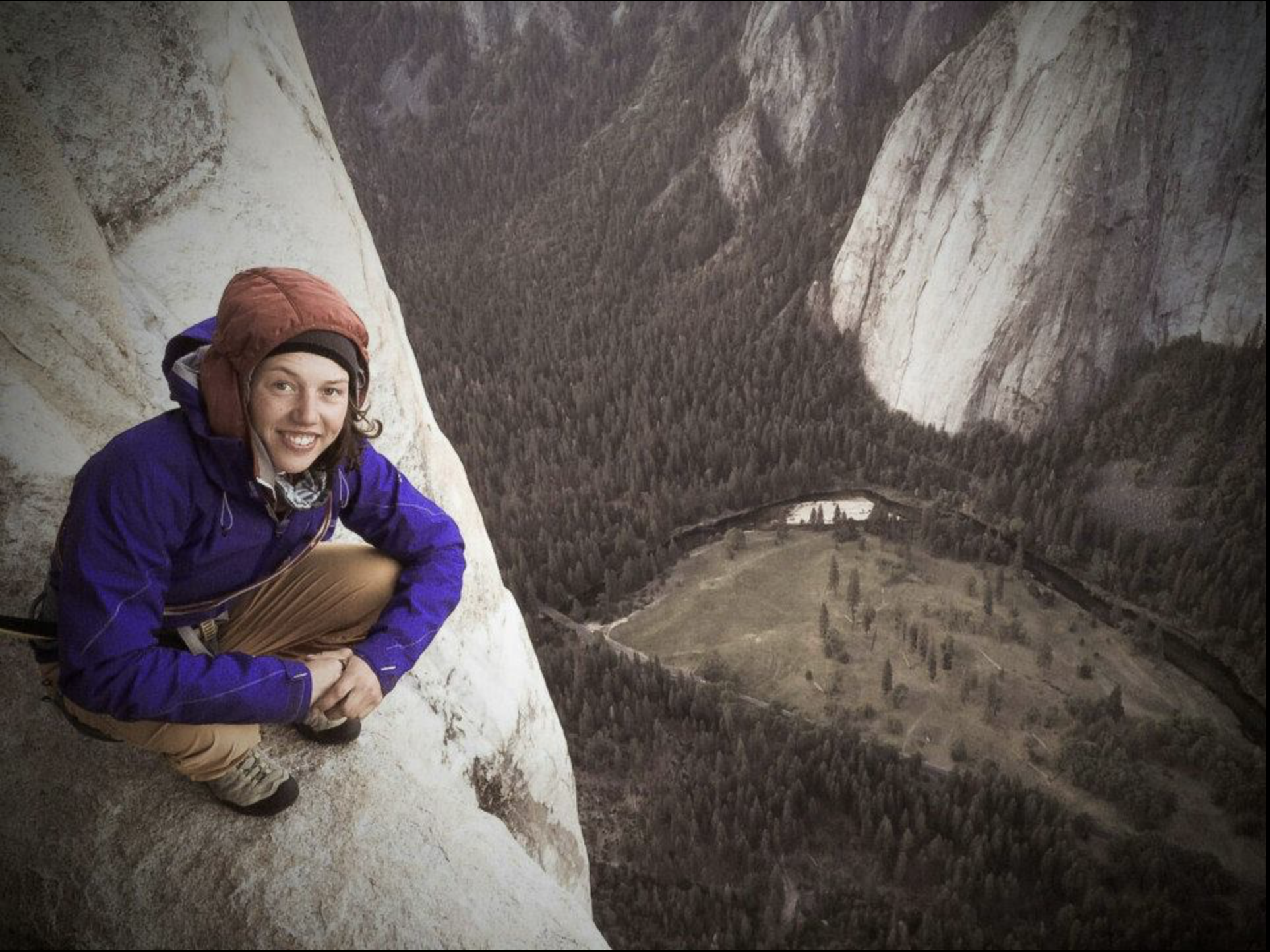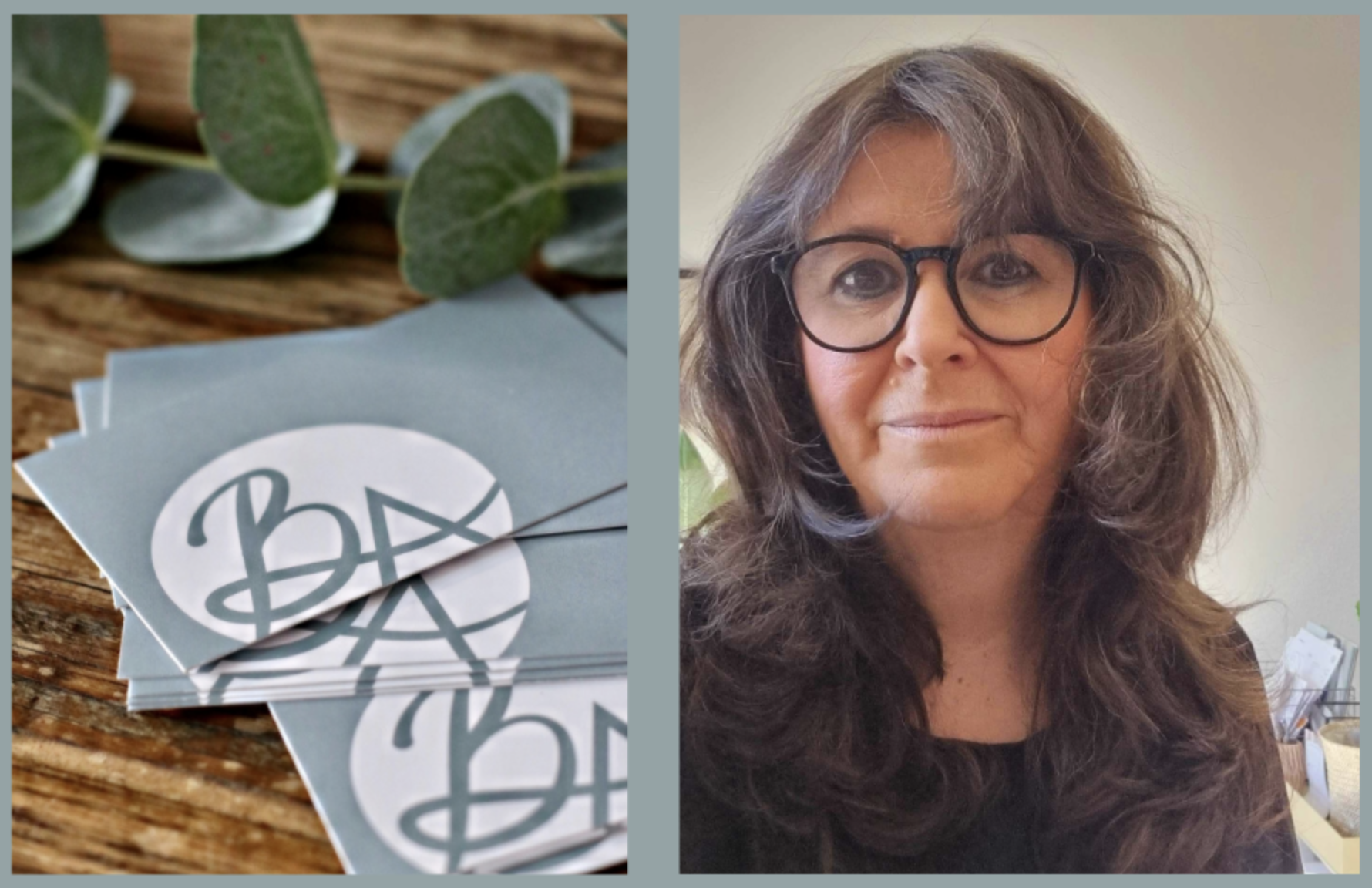#18 GOOD GRIEF NEWS
End-of-life planning isn't about control. It's about care.
Image by Laura Dahlmeier (2015), original is on her Facebook page, taken from an article at biathlonworld.com
I am not a winter sport expert, but the name of 31-year-old German Olympic champion Laura Dahlmeier was familiar to me. So I was stunned when I read about her death this July in a mountaineering accident at Laila Peak in the Karakoram, Pakistan.
The facts are heartbreaking. There was a sudden rockfall at an altitude of almost 5,700 meters, in a valley where avalanches and the exposed location can make rescue a life-threatening undertaking. For a while, it was unclear whether she had survived or not. But what struck me most was the clarity of the immediate statement released by her management:
Laura Dahlmeier expressed in her will that any rescue operations to recover her body must not endanger anyone else - and that her body should remain in the mountains in case such a scenario ever came to pass.
Her family agreed and emphasized that they would respect this wish. This statement, made in the same breath as the announcement of the accident, surprised me. Why?
Screenshot of a post on Laura Dahlmeier’s Facebook page with condolences
Writing a will at 31
Most of us know that it makes sense to put our wishes in writing, but many of us put it off for as long as possible. It can be scary to face our mortality. Dahlmeier, by contrast, had prepared – not because she was morbid, but because she was realistic. As a seasoned mountaineer, she knew the risks and met them with foresight and humility. There is something radical about this that really impressed me.
Refusing to put others in danger
She also went further than most of us would ever go: not only did she make arrangements for herself in the event of her death, she also thought of others and turned down a potentially risky rescue mission. It takes courage to accept your own death, and even more to prevent others from risking theirs in your name.
When last wishes clash with the needs of the living
And yet, not everything is as clear and simple as it seems. I asked myself: Whose wishes and needs really count in the end? Those of the deceased, who have expressly stated them? Or those of the living, who have to mourn? Or even the interests of third parties?
After all, it is often said that funerals are “for the living.” Perhaps a family needs a body close by in order to grieve, to make the loss real, even if they may have thought about that differently before.
Just one day after the accident, the Alpine Club of Pakistan announced plans to recover her body “as soon as conditions allow safe access.” Perhaps it is understandable that the mountaineering community feels obliged to recover the body out of solidarity and respect. While this is relatable, it would still ignore Dahlmeier's wish – a difficult situation.
Dahlmeier’s case exposes a central tension: end-of-life planning is simple on paper, but messy in practice. Clear wishes don’t guarantee they’ll be carried out. They may clash with cultural norms, legal obligations, or the grief of those left behind.
End-of-life planning as love
Still, the alternative is worse. Without clarity, families are forced to guess, debate, even fight about what you “would have wanted.” The hardest day of their lives becomes even harder. Writing down your wishes is not about control, it’s about care. It’s a blueprint for how to love you once you’re gone, without tearing each other apart.
Laura Dahlmeier’s story is tragic, but also instructive. She reminds us that facing death with open eyes is not grim, but responsible. It’s an act of care for others.
Image of Bärbel Amels by Bärbel Amels GenerationenBeratung
💬 Interview
“Planning ahead is not a document – it's a moment of self-reflection and a gesture of love.”
A conversation with Bärbel Amels about last wishes, clarity, and the art of living – and dying – with intention.
Bärbel Amels is an expert in end-of-life planning in Germany. She supports individuals and families in being prepared, for emergencies, sudden illness, and death. Her work covers legal, organizational, financial, and emotional aspects.
What were your first thoughts when you heard about the death of Laura Dahlmeier – and that she had left behind such clear instructions?
When I heard about her death, I felt what many did: it’s simply tragic when someone so young dies in such a way. I’m not a big winter sports fan, but of course I knew her name.
What truly struck me, though, was how quickly her parents released a statement. Just a few sentences: Laura had stated that if she were ever to die in the mountains, no one should risk their life to recover her body, and her parents asked that this wish should be respected. That final sentence moved me deeply. It shows that there must have been a real conversation before – that parents and daughter sat down and talked about the unthinkable. I find that incredibly powerful.
What a balancing act for the parents – deep in grief and yet committed to honoring their child’s wishes.
Yes, it’s unimaginable and an extraordinary act of love. To maintain such clarity in the midst of that kind of pain is admirable.
After her death, there were comments that asked: “How could someone take such risks, practice such a dangerous sport, and put their family through that?” I find that perspective very difficult. We often talk about “self-determined dying,” but I think Laura Dahlmeier above all led a self-determined life. She took responsibility – for herself, but also for others. That's a role model for me: taking responsibility, even when it's uncomfortable.
I was also struck by the fact that she and her family must have talked so openly about it. These are not small, passing conversations.
Exactly. I don’t believe that kind of clarity happens by chance. They must have sat down, talked, perhaps struggled with it. But that’s what planning ahead really is: daring to speak about what we’d rather avoid.
How binding is such a wish? If someone writes down what should happen in the event of their death – is that legally enforceable?
In Germany, you can create an informal funeral directive that is legally binding. However, conflicts often arise in practice: siblings disagree, situations have changed and someone overrules.
Technically, you can take it to court, but who does that in the middle of mourning? What would that even achieve? And legal proceedings often take time. That’s why I say: the binding power of such a wish is less legal than moral. What matters most is that your family knows what you want. That’s when the chances are highest that your wishes will be respected.
Mood images from the website of Bärbel Amels GenerationenBeratung
So in the end, it all comes down to communication?
Yes. Communication – and relationship. If you’ve never spoken with your family about values, about how you view life and death, no document in the world can make up for that.
It’s good to set things down in writing, but in reality, it’s often complicated. Different people, different opinions. So let me ask provocatively: why bother with planning at all, if so much is open to interpretation in the end?
For me, what matters most is that people make conscious choices – and understand the reasons behind them. Of course, we can’t plan everything. And that’s a good thing. Planning ahead isn’t about control. It’s about awareness. I make a choice – for or against something – by understanding the consequences. That’s what responsibility looks like. But of course, this also means taking responsibility for my family, not leaving them behind in my “chaos” of unresolved matters and thus burdening them on their journey through grief.
You often describe “end-of-life planning” as something holistic. What do you mean by that?
Many people think planning ahead just means a binder full of documents – powers of attorney, advance directives. But that’s only part of it. It’s also about values, relationships, and communication. For me, a key question in the beginning of the work is always: What does a good death look like (for you)? We can do a lot ourselves to ensure that the farewell is a good one. I don’t just help people fill out forms – I help them ask themselves: How do I want to live? And how do I want to leave?
So it’s not just about instructions for loved ones, but also about self-reflection?
Exactly. That’s the heart of it. This isn’t a task you just check off. Many people tell me afterward: That was liberating.They’ve engaged with topics that have long lingered in the background. Conscious planning can be deeply fulfilling.
You see this especially with advance healthcare directives. Many believe it’s just a form. Of course, legally compliant preparation is essential, but in truth, it’s a conversation – with yourself, and with those close to you. Because when the time comes, it’s not just about what’s written on paper. The exact situation will be unpredictable. What matters is that your loved ones know how you think, feel, and live – only then can they truly decide in your spirit.
Mood images from the website of Bärbel Amels GenerationenBeratung
What, for you, is the goal of good planning?
Good planning provides stability, both for you and for your loved ones. I’ve experienced this first-hand: my father had everything perfectly prepared. At the time, I thought it was over the top. But when the moment came, that binder was an anchor. I wish that for everyone.
And planning isn’t static, it’s dynamic. You should revisit it regularly: What still matters? What has changed? Ideally, the process enriches not just your end of life, but your life right now.
You call this binder a “Family Handbook.” Why?
Because I don’t like the term “emergency folder” – it sounds like catastrophe. A Family Handbook speaks of connection. It doesn’t just include legal documents, but also personal notes, reflections, wishes. It should be something you’re happy to hold in your hands – a living document, created together, that gives grounding and comfort.
Many people, especially younger ones, shy away from this topic. Why do you think that is?
Honestly, most people still only start thinking about end-of-life planning once they turn 60 or more. Fortunately, I am also slowly seeing younger clients, including families with children, whose awareness of risk and responsibility has changed since they started a family.
But it’s also cultural. For generations, death has been pushed aside. After the wars, we lost the language to talk about it. For many people, planning ahead is associated with fear, emergencies and endings, rather than life. I’ve seen so many difficult situations arise from lack of clarity. But I’d rather inform than frighten. We need a new language. If we talk about self-determination, family, and responsibility, we create space for discussion rather than closing it off.
So we need a new language – and maybe new rituals, too?
Yes. Planning should be simpler. I wish more people had easy access to this knowledge – ideally, it should be taught in schools. You don't always need a lawyer or notary. There are many options, and planning can bring people together. When families talk about these things together, they often grow closer. Many people tell me afterwards: It wasn’t sad – it was beautiful.
Thank you very much for the interview!
👉 I’m curious:
How do you approach this topic?
Do you have a plan? A conversation you’ve been meaning to have? Or does it still feel far away?
What’s been holding you back – or do you have a tip on what helped you get started?
Hit reply and share your thoughts! Your perspective might inspire someone else.
💡 And if you’d like to dive deeper into future-ready rituals, deathcare innovation, or cultural shifts around grief and remembrance, I also work with organizations on strategic foresight, innovation projects, and keynote talks. Let’s start a conversation.
Thanks for reading!
> Thanks for reading GOOD GRIEF NEWS, a monthly newsletter on trends and fresh perspectives around death, grief and remembrance. You can see more of my work at goodgrief.me or stefanieschillmoeller.com and feel free to follow me on Instagram.
> Interested in working with me?
Get in touch if you would like to request a trend talk or inspiration session, or if you are interested in consulting work in this area. Alternatively, you can also book a Pick My Brain Call if you would like to discuss your personal project / startup and need more strategic input.
03.10.2025





